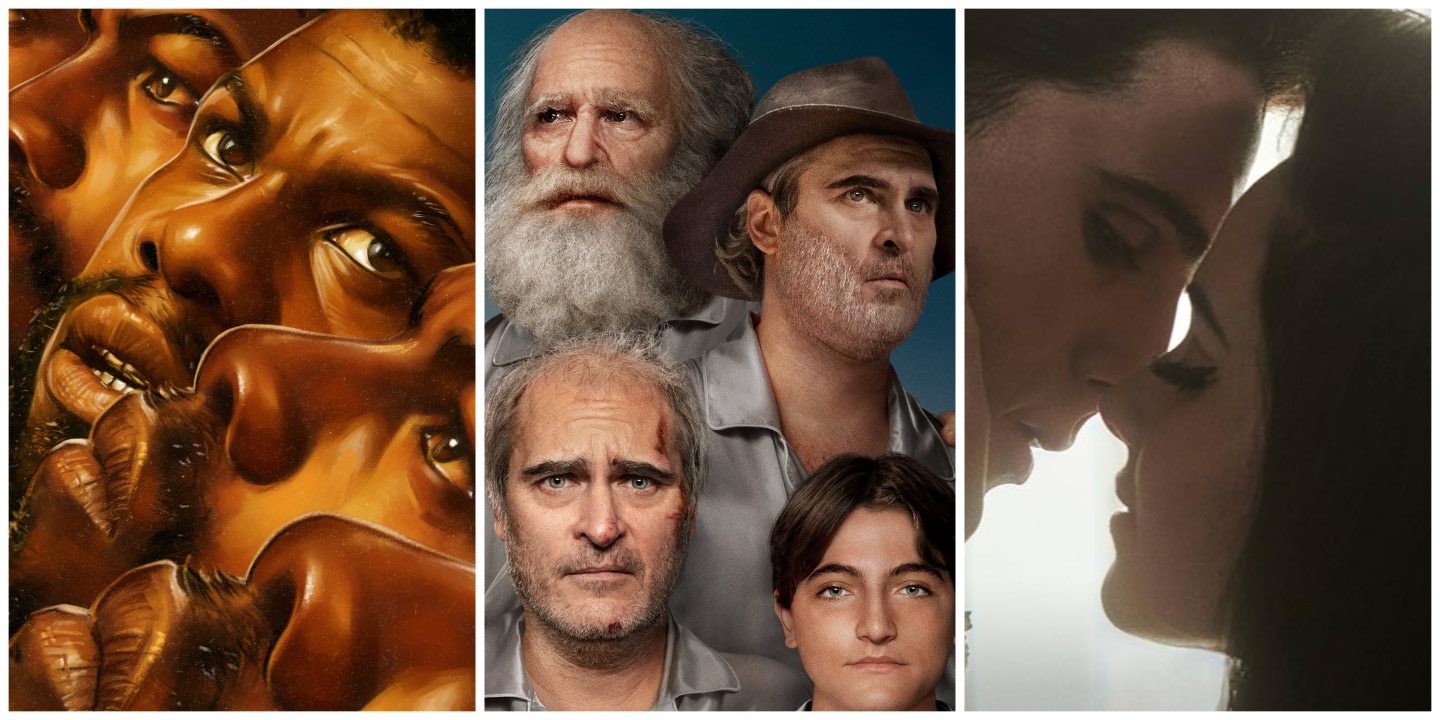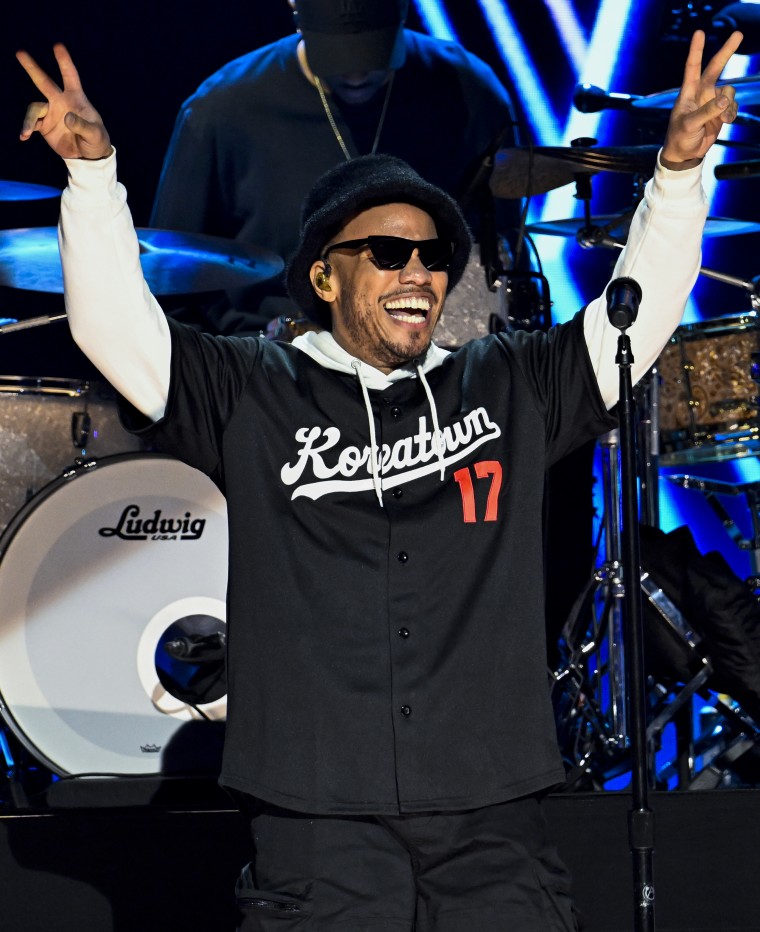Whenever the Oscars announce the nominees for Best Picture, there’s always a tidal wave of people yelling at the Academy over some perceived “snub.” But that doesn’t mean these other flicks don’t deserve some kind of recognition as well, which made us want to share a supplemental list of movies to watch after each Best Picture nominee, with the goal of going one step further than a “if you like this, then watch this” type list.
Instead, we wanted to choose films with the potential to spark further discussion about the issues, themes, and narratives from each nominee. We’re talking about movies that can provide more IRL context, a different perspective, or room for some extra critical analysis. Here are the 10 films we think you should watch alongside all 10 contenders for the Oscars’ coveted Best Picture award.
American Fiction
It’s still an unfortunate part of the POC experience to be trapped inside a losing game based on racial stereotypes and binary thinking. For Black Americans, though, white folks assume that the Black experience is a monolith, made up of sex workers, hustlers, or gang members — a concept at the heart of both Cord Jefferson’s American Fiction and Juel Taylor’s They Cloned Tyrone.
In American Fiction, Thelonious “Monk” Ellison is an academically acclaimed writer having trouble “making it” in mainstream publishing —not because of his writing, but because white publishers only want content that reinforces their own ideas about Black people. This leads to Monk drunkenly writing a joke manuscript that leans into this, resulting in two hours of witty observational comedy and a spot-on depiction of lukewarm white liberalism at its finest.
Meanwhile, They Cloned Tyrone is a comedic sci-fi thriller that doubles down on these aforementioned stereotypes by modeling itself after a ‘70s Blaxploitation flick. Bringing together a trio composed of a “hustler,” “pimp,” and a “pro” — as noted in the trailer — they end up stumbling upon a secret government program experimenting on Black people through cloning, hypnosis, and other forms of. The goal? Maintaining the status quo by sprinkling a mysterious white powder into hair relaxers, grape soda, and even fried chicken in order to keep Black people happy in a cycle of poverty and violence.
Killers of the Flower Moon
Based on David Grann’s nonfiction book, Killers of the Flower Moon is about a nascent FBI’s investigation into the serial murders of Osage Nation members in 1920s Oklahoma. A dramatized Western featuring a powerhouse cast and standout newcomer, Lily Gladstone, the film offers a sobering look at the colonization and exploitation of Indigenous people.
An overt example of American greed motivated by the natural resources found on sacred land belonging to Indigenous folks, Killers of the Flower Moon concerns an ongoing issue that’s chronicled in Lakota Nation vs. The United States. With a story that begins more than a century before the Standing Rock pipeline fight, the documentary is a powerful, Indigenous-led production about the Lakota Nation’s ongoing fight to reclaim the Black Hills after gold was found there in the 1870s. Similar to what happened with the Osage Nation, the discovery resulted in the American government violating the Fort Laramie Treaty of 1868, as well as the subsequent murders of 38 Lakotans who pushed back. Both historically enlightening and visually compelling, Lakota Nation vs. The United States uses archival footage and eye-opening interviews with Lakota elders and activists to provide a real-life look at the issues brought up by Killers of the Flower Moon.
Maestro
Bradley Cooper makes for an incredible Leonard Bernstein, honing in on the musical legend’s well-known conversational tics and overly expressive mannerisms, as well as his complicated personal life. But critics argue that Maestro prioritizes the controversy caused by Bernstein’s bisexuality and failing marriage to rising actress Felicia Montealegre, allowing the drama to completely overshadow his musical genius and tremendous cultural impact as a composer and conductor.
Instead, Carey Mulligan has garnered the most praise with brilliant portrayal as the increasingly disillusioned Montealegre, who knows about all of Bernstein’s affairs but says nothing. She bites her tongue at her own expense, mostly to save her husband from the homophobia of 1940s America. It makes you wonder about the alienation and disappointment felt by every woman that felt obligated to stand behind their man, including Elvis’ child bride, Priscilla Presley.
Based on Priscilla’s own memoir, Sofia Coppola’s Priscilla is a tender coming-of-age film that touches on power dynamics, female autonomy, and how powerful women are relegated to the shadows far too often. It’s a film that will speak to any woman who remembers being naivë enough to get swept up in the fantasy of “first love.” Like Mulligan, Cailee Spaeny provides a painfully realistic depiction of a young woman suddenly thrust into the spotlight, all because of a glamorous whirlwind romance with a famous older man. The sparkle and sheen of being married to the world’s most famous man, however, begins to dissipate when she realizes how lonely it is to be at the top and completely estranged from the rest of the world. And just like Montealegre, the complexity of Priscilla’s sadness also deserves to be seen on-screen, told from the perspective of a teenage girl trapped inside a gilded cage called Graceland.
Oppenheimer
Another biopic, Christopher Nolan’s film about “the father of the atomic bomb” spends most of its time focused on theoretical physicist Robert J. Oppenheimer being dragged into a petty political fight through the weaponization of his Communist past. But Oppenheimer is also occupied with the grave moral dilemmas presented by the atomic bomb. Was killing hundreds of thousands of innocent Japanese people worth ending the deadliest war in human history? As an academic and theoretical physicist, was he wrong to pursue his theory, especially knowing that could also result in positive technological advances? And most importantly, would his creation deter future conflict or would he be unleashing a weapon with the potential to destroy the entire world?
How to Blow Up a Pipeline is about explosives and a moral dilemma, albeit on a way smaller scale. An eco-thriller based on a book arguing that property destruction is justified in cases of activism, the film itself is a bit more critical of this belief. Throughout the film, you’re asked to consider whether you agree with the “ends are worth the means” argument, and whether extreme action that affects other people — regardless of their own greed and destruction — is considered “terrorism” or “activism.”
The Holdovers
The “cynical curmudgeon coaxed out of his shell by some irritating rapscallion” premise is a hard one to get right, especially since it often comes out feeling a little forced or overly saccharine. In The Holdovers’ case, though, that’s not a problem thanks to its sharply written characters, beautifully bittersweet narrative, and moments of absolute hilarity. It’s one of the warmest, most touching depictions of how a motley crew of lonely misfits can come together as a chosen family, so maybe it’s better to suggest a movie that’s its complete diametric opposite in every way, shape, and form.
Cue The Humans, a psychological horror film about a dysfunctional family, who’ve absolutely rejected the honesty, vulnerability, understanding, and selfless care that makes The Holdovers so heartwarming. Uncomfortably eerie and misanthropic, the pitch-black comedy shows what happens after a biologically connected family can become estranged from each other by a lifetime of lies, silence, and suppression. In this case, The Humans proves that blood isn’t thicker than water, and when you let the unspoken fester in the dark, it’ll become as ugly and frightening as the apartment The Humans is staged in.
The Zone of Interest
The Zone of Interest is the kind of movie that shakes you to the core without any graphic imagery or overt brutality. Instead, it’s a film where there are beautifully tended gardens and scenic shots of children playing in a river, images of an idyllic life uninterrupted by the systematic murder of hundreds of thousands of Jewish people next door. And it’s this knowledge that makes the day-to-day banality of the Höss family almost unbearable, especially once you realize you’re sitting on the same side of the fence as observers. But that’s how you’re supposed to feel, unnerved by how easy it is to be coldly indifferent to the suffering of others when it’s out of sight, out of mind.
Given current events, complacency in the face of evil is something that’s especially important to recognize right now by watching a documentary like No Other Land. The recipient of the Best Documentary award at the 2024 Berlin International Film Festival, the film forces the viewer to actively confront the everyday struggles of the Palestinian people. Made by Israeli journalist Yuval Abraham and Palestinian activist Basel Adra, the film focuses on the stark difference between living on one side of the border versus the other, something the film’s producer James Wilson addressed in The Hollywood Reporter. Saying he sees “stark” parallels between his movie and what’s happening in Gaza right now, he talks about innocent Palestinians stuck in the ongoing conflict between Israel and Hamas after the latter launched a surprise attack last October.
“It doesn’t seem to me that complicated to condemn both losses of innocent life — on a basic human empathetic level, there just seems to be the sort of extraordinary empathy dissonance,” Wilson said. “I think the sad fact is that the selective empathy that marks our culture is a continuum, is actually not a moment — probably for hundreds of years before the Holocaust, during the Holocaust, and for the 80-plus years since.”
Poor Things
Poor Things and Beau Is Afraid are both absurdist dark comedies that challenge traditional notions of gender, sex, and the id/ego, through a pair of characters named “Bella” and “Beau,” no less. And coincidentally, both also embark on surreal quests that involve searching for their identities, which they approach with completely opposite dispositions.
In Poor Things, the brave and endlessly curious Bella is determined to exercise her autonomy and challenge every man who gets in her way as a woman in a steampunk-inspired take on Victorian-era England. One way she does this is by exploring her body through masturbation and sex, which she refers to throughout the movie as “furious jumping.” But in addition to tackling the still-taboo idea of female pleasure, Bella is also constantly questioning the restrictions of this bizarre world she’s been given a second chance to experience tabula rasa. With her carefree attitude and pure-hearted innocence, she’s unhampered by the kind of deep-set social conditioning or patriarchal norms that want to force her into becoming something she’s not.
Beau, on the other hand, is a crock pot of people-pleasing and emotional repression thanks to his Oedipal relationship with his mother, a formidable business magnate named Mona Wasserman. A self-professed “coward,” he’s a middle-aged white man who was never allowed to be autonomous. In fact, he’s never taken action or made a real decision for himself, only reacting to whatever is thrown at him inside a strange world entirely created by the trauma of his mother’s unrelenting guilt trips, elaborate traps, and manipulative lies, one of which has made him terrified of sex. It’s probably a twisted result of Mona wanting to be the only woman in his life, but either way the effect’s been the same: an identity that doesn’t exist outside of shame, anxiety, and his mother.
Barbie
An absolute delight of a movie, Barbie may be the most stylish and creative film from the past year. Jam packed with bright candy-colored looks, laugh-out-loud jokes, and genuinely heartfelt moments, there’s a lot to love about the movie, including its ability to engage and educate audiences on the importance of feminism and being your authentic self. Plus, the A-list ensemble of strong female characters makes it exciting to think of the possible impact it’ll have on the young girls and future generations, let alone the adults who loved the movie as well.
But Barbie is a great introduction to something a little spicier, especially for any adult women who — through no fault of their own — continues to struggle with truly “owning” her sexual sides thanks to a puritanical society that’s made female pleasure and sex extremely taboo. So in the spirit of feminist growth and rejecting patriarchal double standards, we suggest the R-rated Joy Ride who enjoyed the feminist message of Barbie and are looking for a movie that specifically tackles the one feminist issue Barbie, for obvious reasons, couldn’t really touch: female sexuality.
A raunchy road trip comedy about a Chinese-American adoptee searching for her birth family with the help of three friends, it’s an outrageously funny and courageously crude film that’s also kind of like an extremely colorful and horny version of The Sisterhood of Traveling Pants that’s also pee-your-pants levels of funny. But Hangover-esque humor and dick jokes aside, Joy Ride is another film that challenges societal expectations of how a woman — especially an Asian American woman — “should” approach sex and sexuality. So while it may have a filthy mouth and rebellious streak, Joy Ride is also a surprisingly warm and earnest movie containing a lot of the same themes as Barbie, whether we’re talking self-love, pushing back against deeply ingrained social expectations, and the age-old lesson of just being yourself.
Anatomy of a Fall
For the past several years, American pop culture’s been inundated with a never-ending stream of soapy legal dramas and lazy true crime, meaning the only thing you probably care about at this point is Ice-T hard-carrying SVU. But this year, the French have blessed the world with two films actually worth watching, including the Oscar-nominated Anatomy of a Fall, which tells the story of a writer trying to prove that she didn’t murder her husband.
A multilayered courtroom drama featuring an incredible performance by lead actress Sandra Hüller, Anatomy of a Fall is a subtle yet gripping movie about the ambiguity of “truth” and how your latent biases factor into the narratives you tell yourself. What makes Anatomy of a Fall truly brilliant, though, is that it also asks the viewer to sit in the jury box through minute actions and allusions to important events that aren’t shown in the film, forcing you to fill in the blanks and come up with your own conclusions. In a way, it’s a fascinating experiment in audience participation, a film that’s supposed to leave you uncertain, uncomfortable, and second-guessing your own views, which is an issue that’s also presented in the equally complex courtroom drama, Saint Omer.
As a warning, Saint Omer is a film that’s haunted by the heaviness of the crime, which involves a woman accused of murdering her infant daughter by leaving her at the beach and letting the tide sweep her away. Based on director and writer Alice Diop’s own experience covering the same crime while pregnant, it’s a daunting, difficult, but incredibly necessary watch that, like Anatomy of a Fall, urges viewers to make their own judgments. And with a lack of graphic imagery or any hint of sensationalism, Saint Omer is a film that should be approached with a thoughtful attitude, as an emotional yet unflinching depiction of a struggling woman who did the unthinkable.
Past Lives
Past Lives is one of the most moving and heart-wrenching portraits of love, yearning, and memory in recent memory. The story of two childhood friends whose relationship evolves over long stretches of time and distance, it seems like it’d be a deceptively simple tale about longing and “what ifs.” But it’s Past Lives’ lack of drama and its tender touch that actually makes it a beautiful and powerful film, flush with subtle emotion told through poignant silences and quick glances. Much like Return to Seoul, it’s a film that contemplates the complexities of the Korean immigrant experience, including cultural identity and unrealized opportunities. That said, the former presents these ideas in a much more rebellious and dynamic form, one that vehemently rejects the stereotypes assigned to Korean women by the Western world.
As the title hints, Return to Seoul is about a Korean woman named Freddie, who was adopted by French parents and has never been to Korea. But when she accidentally ends up in Seoul, she starts a hesitant search for her biological parents, which is only complicated by the years of trauma that comes with being French but not looking like it.
Added to her naturally impulsive, wilful, and explosive personality, Freddie initially approaches everything with a prickly attitude and lets her resentment get in the way, which is also reflected in the chaos and volatility of the filmmaking — something that lasts until she begins to reach resolve. But even though Return to Seoul is the tonal antithesis of Past Lives, as a Korean American with little connection to her own heritage, there’s something to be said about both films proving that appearances can often be deceptive.




